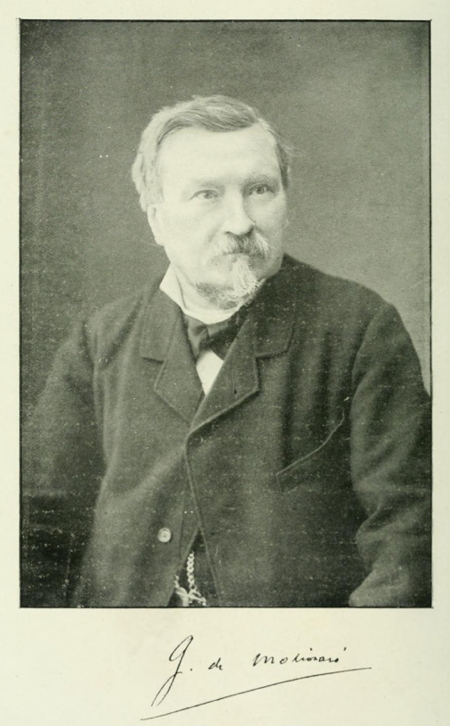Saturday - October 06, 2012
Molinari on the Different types of Entrepreneurs

Gustave de Molinari (1819-1912)
As part of our commemoration of the Centennial of his death at 92 years of age on 28 January, 1912 in Adinkerke, Belgium we will highlight some important aspects of his thought.
Here we have a brief discussion of "The Different Kinds of Entrepreneurs" which Molinari identified in his writings between 1849 and 1863. The fuller discussion can be found here.
In his book Les Soirées de la rue Saint-Lazare; entretiens sur les lois économiques et défense de la propriété (1849) uses thé word "entrepreneur" 17 times. He builds on the work of Jean-Baptiste Say who gave the entrepreneur a major role in the free market in his work Traité d'économie politique (1803). The frequent use of the word "entrepreneur" was a fairly general one but he linked the work to 11 specific economic activities which are listed below. There are some surprising types of entrepreneurial activity in his list (frequency of use):
- entrepreneurs d'industrie (7) - industrial or manufacturing entrepreneurs
- entrepreneurs de production (2) - manufacturing entrepreneurs
- entrepreneurs du tissage (2) - entrepreneurs in the weaving industry
- entrepreneurs de prostitution (1) - entrepreneurs in the prostitution business
- entrepreneurs d'education (1) - entrepreneurs in the education business
- entrepreneurs de roulage (1) - entrepreneurs in the haulage business
- entrepreneurs d'industrie agricole (1) - entrepreneurs in the agriculture industry
- entrepreneurs de diligences (1) - entrepreneurs in the coach business
- entrepreneurs ou directeurs d'industrie (1) - entrepreneurs or directors of industrial enterprises
- entrepreneur de pompes funèbres (1) - entrepreneurs in the funeral business
- le laborieux entrepreneur, naguère ouvrier (1) - entrepreneurs who have emerged from the working class, i.e. "self-made" entrepreneurs
What I think is interesting is his belief that entrepreneurs should be completely free to operate in industries which were highly regulated by the state.
